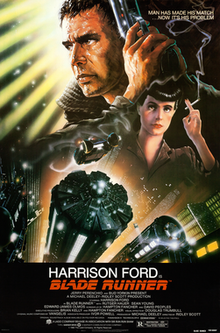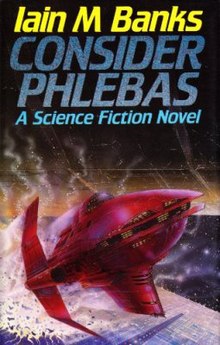- What is Sentientism?A worldview committed to evidence, reason and compassion for all sentient beings
What is Sentientism?
- Resources
Find out more about Sentientism – whether you prefer to watch,
listen or readResources
- In Action
- Groups
Our groups are open to anyone interested – not just for people who agree with Sentientism. Come join the conversation or just listen inGroups
- We are Sentientists
Learn about people with a Sentientist worldview and add yourself if you’re one of them.
Also find out which ‘celebrities’ we suspect might be Sentientists”We are Sentientists
- Resources
Sentientism in action
The Sentientist tenets of naturalism (evidence and reason) and sentiocentrism (compassion for all sentient beings regardless of other characteristics) can be found in many cultures and different forms of art and media, ancient and modern. This page sets out some examples suggested by people in our Sentientism communities. Thanks to Graham for suggesting the idea.
Please get in touch via any of our social media accounts or groups or by joining one of our communities if you have other suggestions. The commentary below includes spoilers!
Maybe, over time, we’ll see more writing (see the Literary Veganism journal), movies, music, art and games reflecting rationality and universal compassion.

Films can be powerful ways of us imagining the perspectives of others but those others are rarely non-human sentients. When the subjects are non-human the perspective is nearly always brutally anthropomorphised – even anthrofabulated – although if that helps to engender genuine compassion (see Okja as an example) it’s better than nothing. More film-makers are trying to address these, often unthinking, oversights. Recent examples include Gunda, Stray and Cow.

E.T. – the Extra-Terrestrial: In this 1982 film, the lead human character, Elliot, grants moral consideration to the sentient extra-terrestrial E.T., despite his unfamiliar appearance, behaviour and communication. The adult scientists seem to want to experiment on E.T. with no regard for his interests or preferences.
Elliot also recognises the moral salience of the frogs destined for dissection in the biology class, potentially influenced by his remote empathic connection to the alien. Thanks to Floris van den Berg for this suggestion in our Sentientist Conversation.

BladeRunner: In this 1982 film, bioengineered humanoids called replicants have rebelled against their intended slavery and are being hunted down by humans called BladeRunners. The film explores whether the replicants warrant moral consideration and whether they can be considered moral agents themselves. If you can no longer tell the difference between an artificial being and a biological human being, should you make an ethical distinction between them? The film even hints that the lead human character, BladeRunner Deckard, might himself be a replicant.The film implies that the owning or use of any biological animal product is illegal. It seems more likely that this is motivated by environmental scarcity due to the damage caused by humanity than because of any moral concern for non-human animals – but it seems likely the BladeRunner world is technologically vegan.
The tests used to assess humanity often use scenarios of empathy for non-human animals, implying that some form of sentiocentric concern is a distinctive human characteristic – albeit one we discover the replicants seem to share.

Blindsight: Is a hard science fiction novel written by Peter Watts. The novel follows a crew of astronauts sent out as the third wave, following two series of probes, to investigate a trans-Neptunian Kuiper belt comet dubbed ‘Burns-Caulfield’ that has been found to be transmitting an unidentified radio signal to an as-yet unknown destination elsewhere in the solar system, followed by their subsequent first contact. The novel explores questions of identity, consciousness, free will, artificial intelligence, neurology, game theory as well as evolution and biology.
Thanks to the awesome @0gPhilosophy for the suggestion. Often the best philosophy is in Sci-Fi!

“The Measure of a Man” (1989) is an episode of Star Trek: The Next Generation in which Captain Picard must prove that Data, their fellow android crew member, is legally a sentient being with rights and freedoms under Federation law when transfer orders demand Data’s reassignment for study and disassembly. It has since become a series classic and definitive example in science fiction generally of artificial sentient rights.
“The decision you reach here today will determine how we will regard this creation of our genius. It will reveal the kind of people we are; what he is destined to be. It will reach far beyond this courtroom and this one android. It could significantly redefine the boundaries of personal liberty and freedom: expanding them for some, savagely curtailing them for others. Are you prepared to condemn him [Commander Data] – and all who will come after him – to servitude and slavery? Your honor, Starfleet was founded to seek out new life: well, there it sits! Waiting.”
In this clip, a member of the Star Trek crew explains to a guest alien that “We no longer enslave animals for food purposes” instead preferring to create suffering/death free “clean meat” using transporter technology. The alien considers this “sickening… barbaric”.
Thanks to Graham Bessellieu for this contribution.

The Great Silence (re-published here by Nautilus) is a short story published as part of the “Exhalation: Stories” collection by science fiction author Ted Chiang.
The story is written from the perspective of a parrot, wondering why, given the human fascination with the possibility of alien intelligent life, we don’t seem more interested with learning to communicate with the non-human intelligent life that already shares our planet.

This article, “In a Perfect World, There Would Be No Animal Suffering” by Andrew Openshaw in Sentient explains how moral concern for non-human sentient animals (and therefore veg*ism) is a frequent characteristic in many real world and fictional utopias.

The Culture Series – Iain M. Banks – Tales of a post-scarcity civilisation that seems to have a species and substrate-spanning compassion at its heart.

Nausicaä of the Valley of the Wind – The protagonist is always trying to look for the most compassionate solution given difficult circumstances. A major plot point is her empathizing (and mind melding) with the “Ohm” – giant shelled insect creatures. Initially seen as a threat she learns they’re being driven out of their homeland by toxins caused by humans. The manga and the film have strong themes of healing and rectification. Thanks to Graham for the suggestion!

The Promised Neverland – A manga series that might help humans to empathise a little more directly with farmed animals.

The Humans, by suspected celebrity sentientist Matt Haig – provides an alien perspective on us humans, including our thoughtless treatment of non-human sentient beings.

Axiom’s End by Lindsay Ellis – includes the quote “would you consider the fear of billions of flesh-eating aliens illogical?”

The Banished Craft – and all the other works of suspected sentientist E.D.E. Bell.

Earthlings: The Beginning – and the rest of the series by Ray Star. Here’s an interview of Ray by Sentientism guest Kim StallWood.

Diaspora – and all the other works of suspected sentientist Greg Egan. For example, his short story Crystal Nights addresses themes of artificial sentience, the reality of “simulations” and maybe the ethics of intervening in wild animal suffering.

War of the Worlds, the Matrix and many other depictions of humans being exploited for food or resources. HG Wells said of “War of the Worlds”: “And before we judge them [the Martians] too harshly, we must remember what ruthless and utter destruction our own species has wrought, not only upon animals… but upon its own inferior races. The Tasmanians, in spite of their human likeness, were entirely swept out of existence in a war of extermination waged by European immigrants, in the space of fifty years. Are we such apostles of mercy as to complain if the Martians warred in the same spirit?”

Carnage – a film by suspected sentientist Simon Amstell, tells the story of a future vegan human society (2067) trying to come to terms with the guilt of its carnist history.
and stay up to date